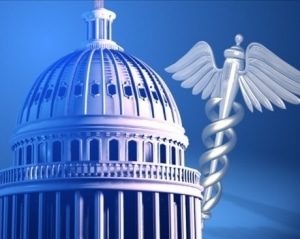 In the recent election cycle, Republican presidential candidate Mitt Romney’s repeated pledge that, if elected, he would “dismantle” the Affordable Care Act raised questions about the longevity of federal healthcare reform. Health care providers, insurance companies, and state insurance regulators watched the election closely as an indicator of the future of health care reform. President Obama’s reelection indicates that the Affordable Care Act is here to stay, signifying a “green light” for new programs created by the Affordable Care Act. The Obama administration has already moved forward in implementing many provisions of the law.
In the recent election cycle, Republican presidential candidate Mitt Romney’s repeated pledge that, if elected, he would “dismantle” the Affordable Care Act raised questions about the longevity of federal healthcare reform. Health care providers, insurance companies, and state insurance regulators watched the election closely as an indicator of the future of health care reform. President Obama’s reelection indicates that the Affordable Care Act is here to stay, signifying a “green light” for new programs created by the Affordable Care Act. The Obama administration has already moved forward in implementing many provisions of the law.
This week, the Department of Health and Human Services issued three proposed rules, which further clarify specific programs under the Affordable Care Act. The first proposed rule addresses the inability of health insurance companies to discriminate against individuals based on pre-existing chronic conditions, and prohibits companies from charging higher premiums to enrollees based on health status. The second proposed rule outlines the standards for coverage of “essential health benefits” which insurance plans and state health exchange programs will be required to provide to beneficiaries. The third proposed rule addresses the implementation and expansion of employment-based wellness programs in an attempt to control health care related spending.
Beginning in January 2014, individuals and small businesses will be able to purchase private health insurance through new state-based health exchanges. As of last week, 23 states indicated that they would be proceeding with creating health insurance exchanges in their states. The California exchange intends to help residents find health insurance coverage by assisting two million residents in purchasing private insurance on the individual market through the exchange, and by using the exchange to identify an additional two million residents who are eligible for Medi-Cal.
Finally, the Obama administration will continue to fund federal efforts to detect fraud, waste, and abuse in the Medicare and Medicaid programs. This includes expanded overpayment recovery efforts through the Recovery Audit Contractors program, enhanced data sharing between government health care programs, and continued funding of fraud detection efforts by the Health Care Fraud Prevention and Enforcement Action Team.
Health care providers, particularly primary care physicians, will experience an increased demand for preventative healthcare services as a result of the Obama administration’s new programs. In addition, these programs expand the number of individuals who will have health insurance coverage. For health care providers, these changes represent only the beginning as the Obama administration issues new rules and rolls out new programs over the next four years.